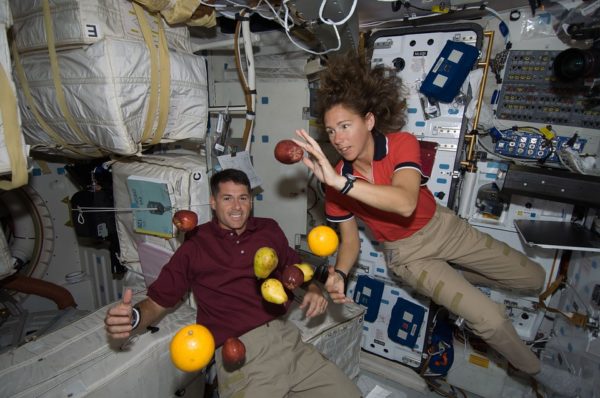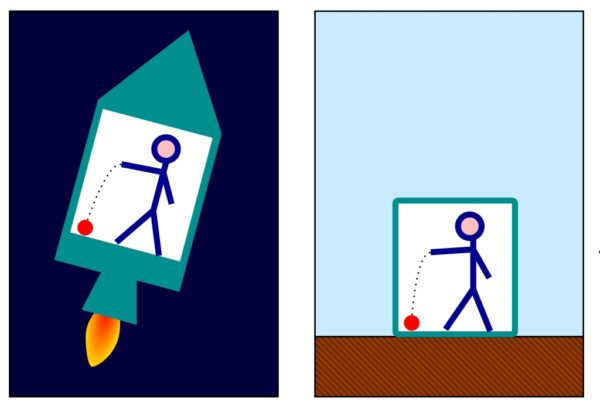"It was a strange lightness, a drifting feeling. Zero gravity. I understood that everything that once seemed solid and immovable might just float away." -Lisa Unger
If you want to experience zero gravity, all you need to do is go to space, turn your rocket off and feel that weightless sensation, right? Except, from up there in Earth’s orbit, the gravitational force on you is still almost as great as it is on Earth’s surface! You still accelerate down towards the center of the Earth, not quite at 9.8 m/s^2, but not by much less.
 Astronauts, and fruit, aboard the International Space Station. Note that gravity isn't turned off, but that everything -- including the spacecraft -- is uniformly accelerated, resulting in a zero-g experience. Public domain image.
Astronauts, and fruit, aboard the International Space Station. Note that gravity isn't turned off, but that everything -- including the spacecraft -- is uniformly accelerated, resulting in a zero-g experience. Public domain image.
There’s no place in the Universe where you can go to hide from the long-range force of gravity; its effects reach everywhere. So how, then, can we claim to truly know what it’s like in a zero-gravity environment? Because zero gravity isn’t about turning gravity off; it’s about the forces we do (and don’t) experience on our bodies.


Until the theoretical quantum of mass, as the segment of infinite pure energy is reached, particles as waves will persist until the quark gluon plasma condenses into objects that we, within our own plane of reference, can see.
There is always a greater mass within the energetic to cause gravitational attraction towards any particle wave within it.
Only the entire energetic whole, as the expression of a quantum of infinite pure energy, has no gravitational affect within it's finite mass.